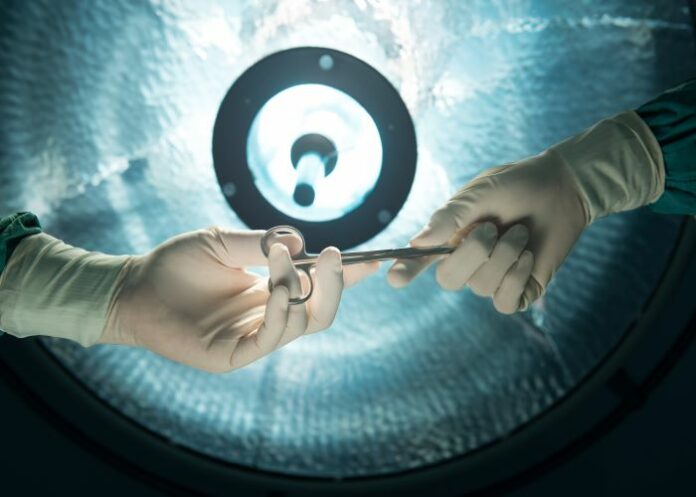There has been a growing, increasingly angry call for an end to load shedding for South African medical institutions, with healthcare providers and professional bodies saying the blackouts are jeopardising patients’ lives and hampering service delivery, and in public institutions especially, adding to the existing burdens of inadequate facilities and crippling staff shortages.
Head of Internal Medicine at Charlotte Maxeke Johannesburg Academic Hospital Professor Adam Mohamed has started a petition calling on government to exempt all hospitals in Gauteng from load shedding, saying that the rolling blackouts are straining not only equipment but also the lives of the most vulnerable.
He pointed out that hospitals in the Western Cape do not load shed.
“As it is, after COVID, the number of admissions and severity of disease have increased exponentially, putting a further strain on an already stretched healthcare system,” he said, adding that UPS batteries in neonatal care wards and other ICUs do not have enough time to recharge between power cuts during load shedding, which is fatal for infants and the most vulnerable of patients.
“Even where hospitals do have generators they cannot power the entire hospital so outpatients, for example, who sit in an area not considered an emergency area, will be in total darkness, requiring healthcare professionals to use their cellphone torches to examine them.”
During load shedding, a hospital like Charlotte Maxeke burns through between 800 and 900 litres of diesel a day, reports IOL.
This translates into an expenditure of between R5m and R8m, which all comes out of the provincial health budget – and means there is that much less to spend on patient care.
Water supply is also affected during load shedding, said Mohamed, which had a direct impact on hygiene and an increase in the spread of infections.
“Staff morale at Charlotte Maxeke after COVID and the hospital fire is at an all-time low. Add to that load shedding, and the healthcare system can be safely said to be in a state of disintegration,” he said.
Chairman of the South African Medical Association (SAMA) Mvuyisi Mzukwa said there is a huge possibility that vulnerable patients in theatre or ICU, or women in childbirth, could face serious complications resulting from load shedding.
He added that power surges have been ripping through medical equipment, and despite battery backups or generators in some hospitals, when load shedding reaches the higher stages, like stage five or six, they cannot sustain energy for long enough.
Backup systems due to poor maintenance also often don’t kick in on time or at all – systems need to be able to supply the electricity in seconds as soon as a blackout occurs, said Mzukwa.
SAMA’s calls for intervention are reiterated by the Health Professions Council of South Africa (HPCSA), reports BusinessTech.
In a statement, the council’s president, Simon Nemutandani, said load shedding was crushing hospitals countrywide. More than 80% of the population relies on the public health system, with 420 state-run hospitals and 3 000 state-run clinics that often do not have backups.
The Health Department said it was trying to find additional power sources to supply its facilities during load shedding.
On Monday, Health Minister Joe Phaahla said the department was “working on alternative, additional sources over and above the generators, which are not meant for prolonged outages, to seek additional supply of power to be considered for installation in health facilities to complement the generators as part of the energy mix”.
Phaahla said he had ordered the director-general, Sandile Buthelezi, to work with provincial heads of health departments to finalise the assessment of the impact of load shedding on health facilities.
News24 reports that he also “engaging with Minister of Public Enterprises Pravin Gordhan, Eskom and municipalities on what processes should be followed to exempt health facilities from load shedding” and that he would provide an updated report on the matter tomorrow.
In Limpopo, health facilities were reeling this week from the effects of load shedding, exacerbated when standby generators failed to kick in.
Provincial health authorities had to cancel all elective operations and focus only on emergencies, and clinics were also severely affected as most use boreholes requiring electricity to pump water. Health spokesperson Neil Shikwambana said facilities had to rely on water tankers that are insufficient.
He said: “Load shedding affects a wide range of patient care: equipment such as chiller plants and air conditioners for theatres, medical gas and freezers for patient food, medicines and mortuary. Some of the impact of this is that hospitals are unable to carry out operations as planned.
“Facilities end up having to rely on water tankers from municipalities, which are not enough for the full functioning of hospitals. Without water, services such as washing of patient laundry, cooking their food, and other procedures which require a lot of water, are hampered.”
The power outages have has exacerbated the existing water crisis in Polokwane and surrounding areas, which have already suffered several weeks of water shortages due to non-maintenance of infrastructure.
Municipality spokesperson Thipa Selala said the load shedding challenge came at a time when reservoir levels had shown no improvement, with some of them still at 0%.
He said: “The municipality and Lepelle Northern Water are engaging with Eskom to isolate water sources from load shedding to ensure sustainable supply of water to all areas.”
BusinessTech article – Deep crisis for hospitals in South Africa (Open access)
News24 article – Load shedding: Health dept working on alternative power sources for its facilities
See more from MedicalBrief archives:
Calls to exempt hospitals and clinics from loadshedding
Floundering Rahima Moosa Hospital ‘needs to admit it has a crisis’
Bara coughs up R3.4m for generator diesel during 2022 load shedding
Charlotte Maxeke repairs on track at 90%, but still two-year waiting lists

